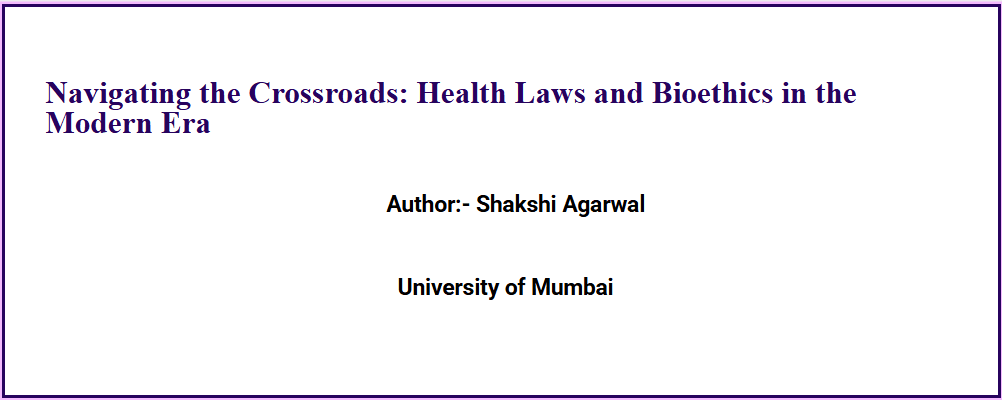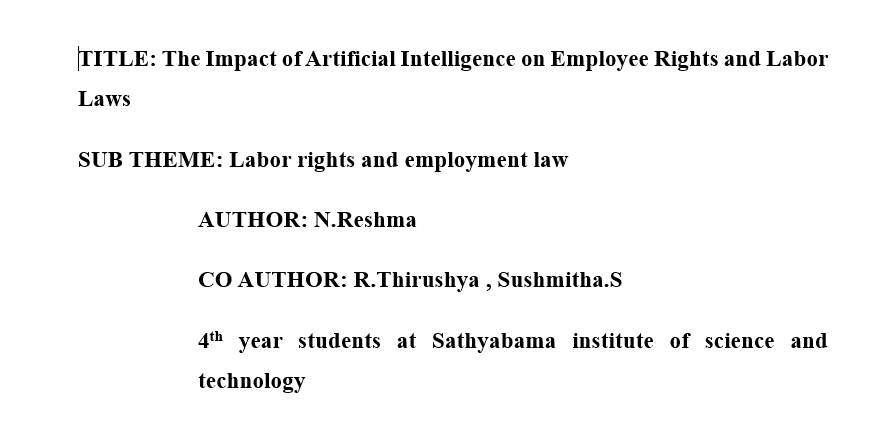ABSTRACT
Marital rape occurs when a spouse has non-consensual sexual intercourse with another spouse. It’s such an act that represents a tremendous human rights violation. Even after so much has been achieved in recognising sexual violence globally, marital rape is still highly under-criminalised in most societies, owing to deep-rooted cultural, religious, and legal exemptions. This paper studies marital rape from a human rights perspective, with an analysis of what international legal frameworks and domestic legal systems offer in conjunction with societal perceptions. The studies also look into the physical and psychological impacts on victims. While emphasising the need to globally criminalise marital rape, this paper also makes recommendations to eliminate the social and legal barriers against victims’ justice.
keywords: Marital Rape, Human Rights, Gender Equality, Sexual Violence, Legal Reform.
1. INTRODUCTION
Marital rape forms the most vigorous outcry in disregarded sexual violence as it violates autonomy, rights, and bodily integrity, an issue highlighted by the institution of marriage. Dissociated from the earlier reliance on the doctrine of ‘implied consent,’ it has come down from doctrinal roots where patriarchal ideologies presume that a spouse, above all the wife, loses the right to consent upon marriage. Memorialisation within marriages validates the constraint against individual-focused rights and the glorification of the standards above others. Abuse of this type would result in serious physical damage and emotional trauma, leading to psychological distress in the form of depression, anxiety, or post-traumatic stress disorder; their conditions are aggravated by the social stigma attached to it and the collective pessimism. Several legal systems do not include the institutionalisation of marital rape within criminal offences because of cultural modes of tradition, religious beliefs, and the sanctity of marriage. Hence the survivor is denied justice, and such intoning perpetuates wrong beliefs about gender. While several countries have begun the journey to decriminalise marital rape, many others have yet to bring it into their legal frameworks, thus presenting discrepancies regarding the world as a whole in the approaches taken toward the issue. In the spirit of overturning the trend of gender-based
violence, including marital rape, the international human rights instruments, such as the UDHR, CEDAW, and, to some extent, the Istanbul Convention, have contended for such endorsement. However, inconsistent implementations of these standards have left many survivors unprotected. It demands attention to the gross violation of human rights; understanding it fully calls for historical, cultural, and legal examination, identification of gaps, and then redistribution of societal perceptions that sustain this crime. To consider marital rape a matter of human rights violation is necessarily a step toward equality of genders and autonomy, dignity, and safety for all persons in marriage.
2. UNDERSTANDING MARITAL RAPE
2.1 Definition and Historical Context
Marital rape refers to non-consensual sexual intercourse within a marriage that violates personal autonomy and constitutes sexual violence. Historically, many legal systems overlooked the husband’s liability based on the now outdated doctrine of “implied consent” that sprang from patriarchal thinking that women, upon marriage, had their irrevocable consent to sex and became property of their husbands. Such ideologies thus rooted marital rape exemptions in the law, granting immunity for any act of sexual violence in marriage. While some nations have made strides in enacting laws against rape within marriage, many still hold relics of laws that leave innumerable survivors without recourse. Such understanding within this historical context further draws out the structural impediments that keep marital rapes intact, barring appropriate justice and equality in marriage.
2.2 Global Perspective
Culturally, religiously, and legally, the definition and treatment of marital rape change in the world. Countries like the United States, South Africa, and Canada, however, have made marital rape a crime within acceptable international human rights standards; other areas-like South Asia, the Middle East, and Sub-Saharan Africa-still exempt it under quite deep patriarchal norms, cultural traditions, and religious teachings. In these regions, survivors are left vulnerable and without sufficient avenues for redress combinations of societal stigma and weak legal frameworks. While this is true in some countries, there still exist gaps in addressing marital rape in other parts of the continent, many of which deny survivors justice and reinforce systemic inequalities.
3. LEGAL FRAMEWORKS AND CHALLENGES
shelters, thus worsening the plight of survivors in abusive relationships or in seeking justice. These various barriers, both systemic and societal, create an ambience where survivors can hardly rely on support systems, which further continues the poverty cycle. Therefore it reinforces the need for urgent measures to enact comprehensive legal reforms, conduct awareness campaigns, and build capacity for the full realisation of survivors’ rights.
4. MARITAL RAPE AS A HUMAN RIGHTS VIOLATION
4.1 Violation of Fundamental Rights
Marital rape is a violation of some fundamental human rights, violating certain provisions of international human rights law. The most important limb of personal liberty is bodily autonomy, i.e., the right to make decisions regarding one’s body without any external compulsion. The act of marital rape is against this prerogative by enforcing non-consensual sexual acts stripping individuals of that agency of controlling their bodies according to their will. On the other hand, the absence of criminalisation for that may institutionalise gender inequality and also strengthen patriarchal norms, which promote the notion discriminatory-wise that a woman’s rights within marriage remain inferior to that of the institution or that of her husband. This ends up denying survivors justice, making it impossible to move towards gender equality in law and society. Not only physical and emotional, marital rape brings with it the added impact of great mental suffering, as survivors would rather keep on suffering in silence, inflicting more embarrassment on them, persistent pain, and then long-lasting emotional trauma. These acts will amount to torture and degrading treatment and thus violate fundamental protections in the Universal Declaration of Human Rights and the Convention Against Torture. All the more is the suffering aggravated by the intimate nexus of marriage because continuous assaults by a trusted partner render the violation all the more agonising. Marital rape itself represents a violation of individual rights as well as the failure of aggregates by states in meeting their obligations regarding human rights.
4.2 Impacts on Survivors
Keeping in mind that this write-up will be particularly crucial for some of your viewers, you may find it interesting to know that although often seen as private injury, injuries incurred in rape go well beyond the physical. Such injuries are as much psychological as they are socio-economic. Survivors face many physical consequences: early injuries, higher risk of sexually transmitted infection (STI), and unwanted pregnancies that can lead to long-term health complications. It also develops an atmosphere in which such psychological conditions as






Leave a Reply